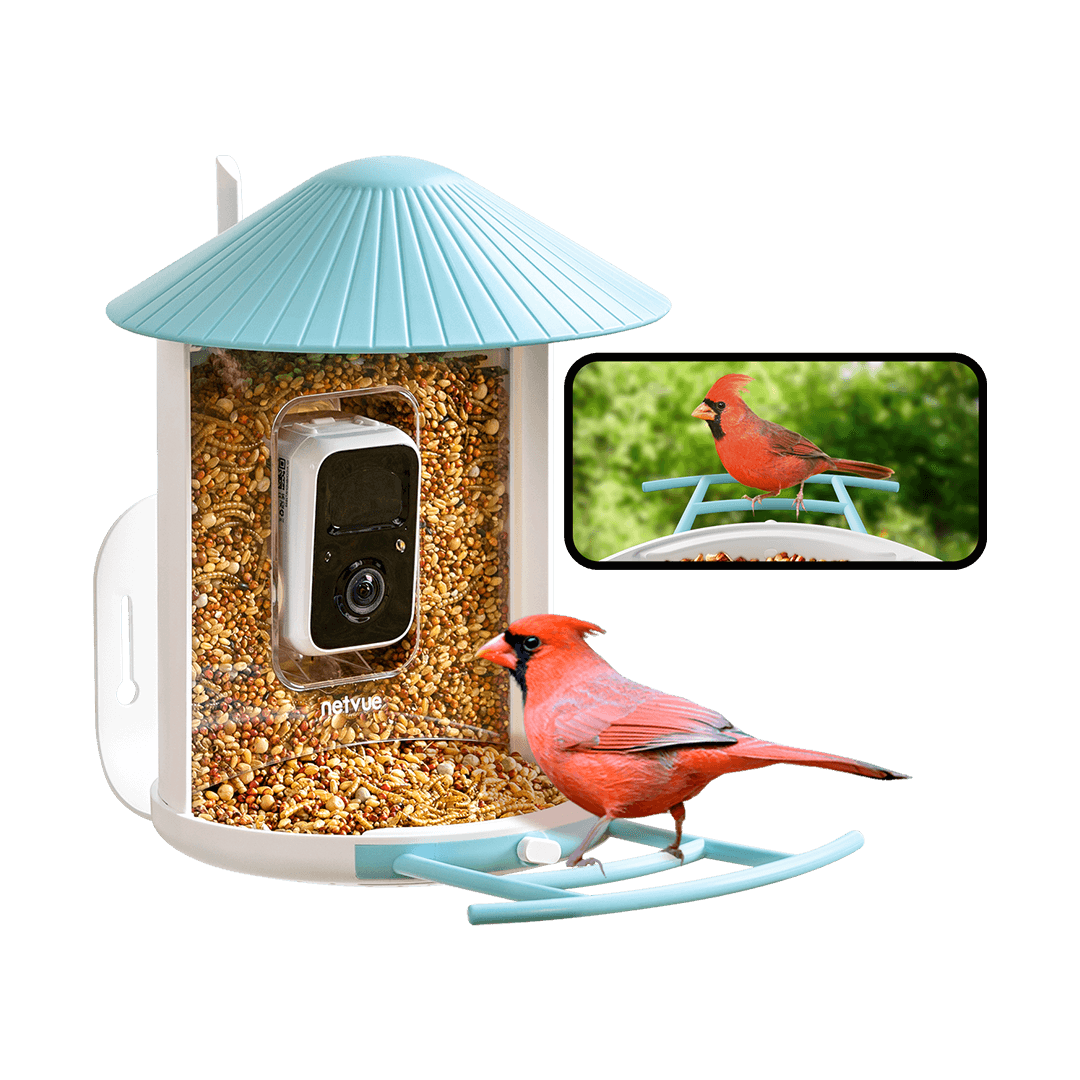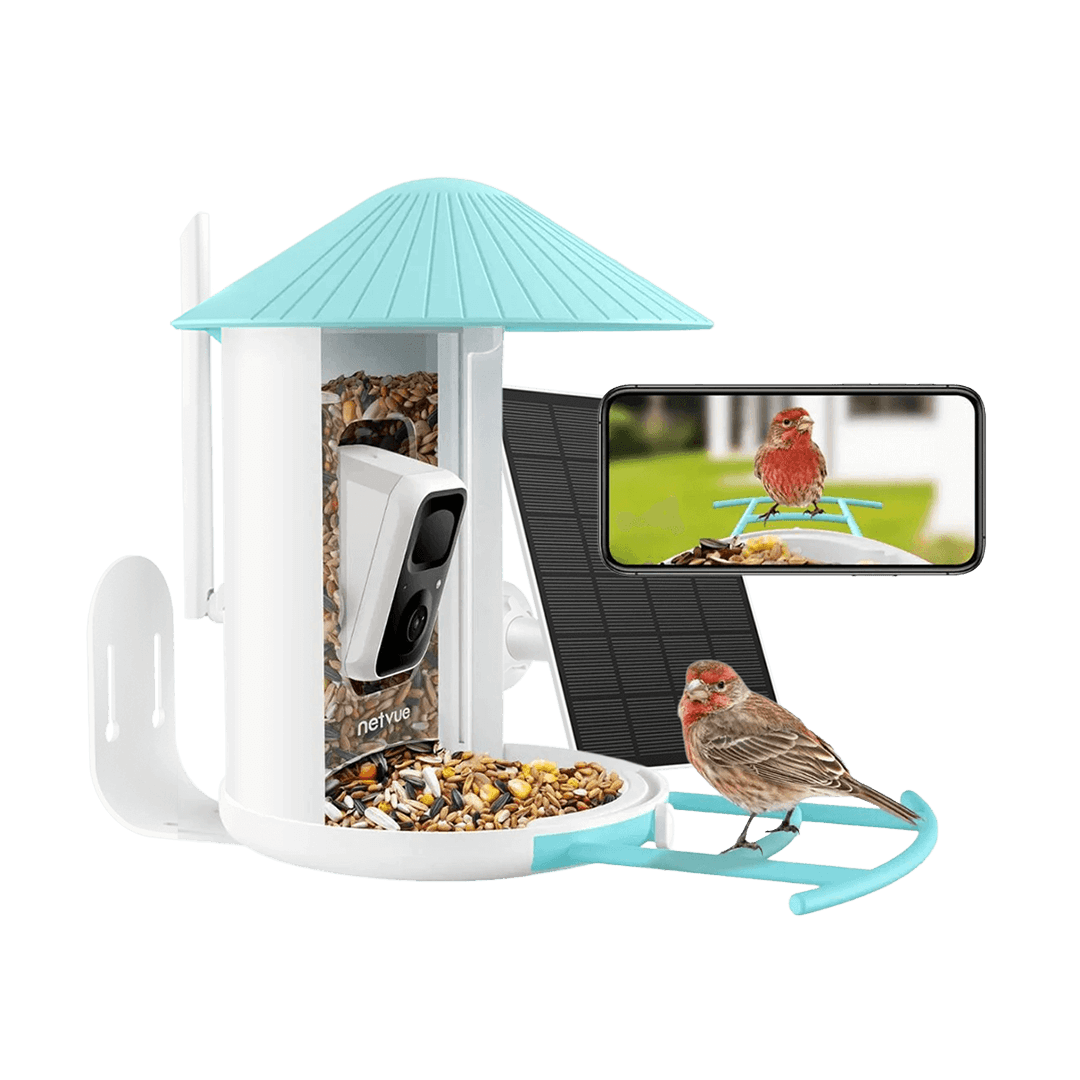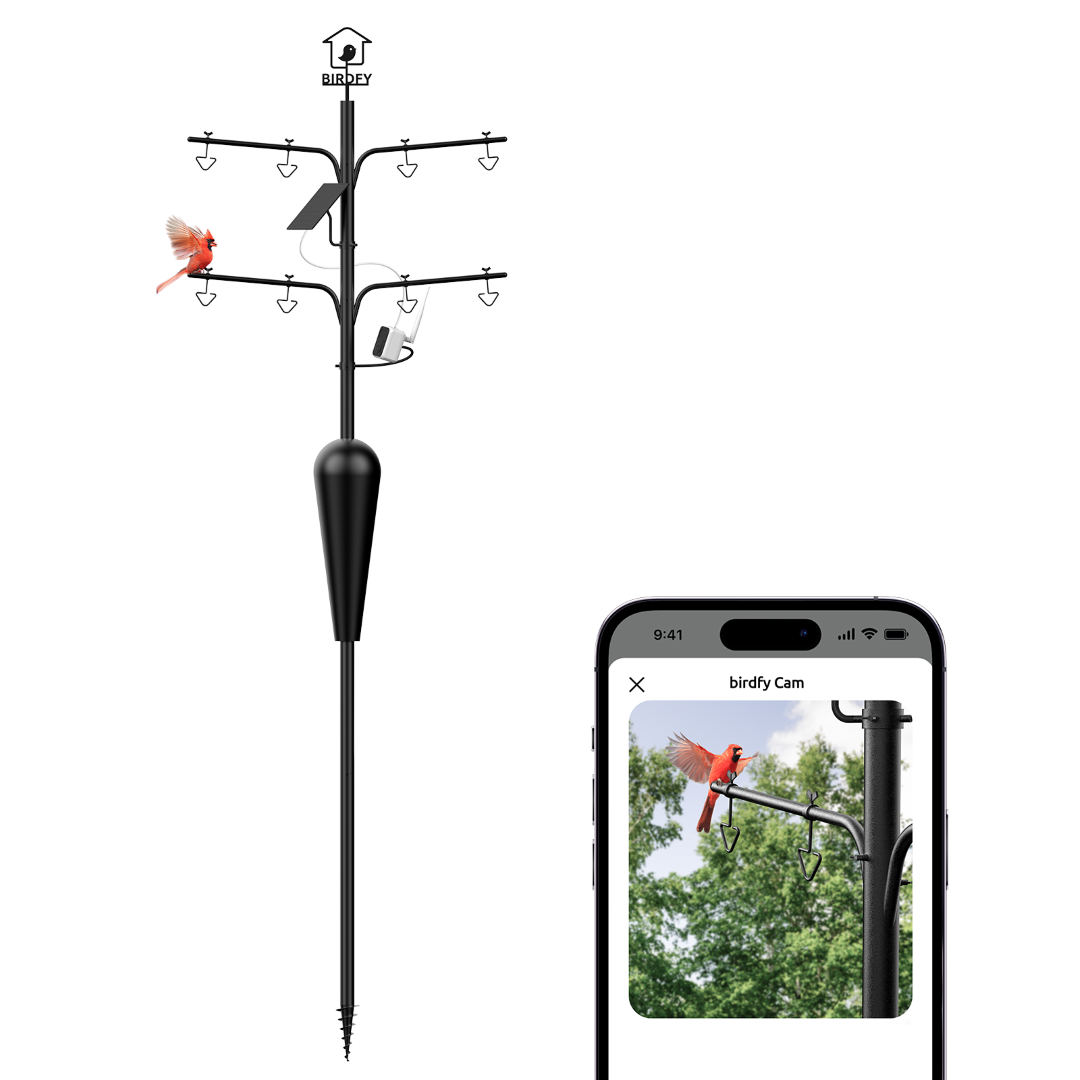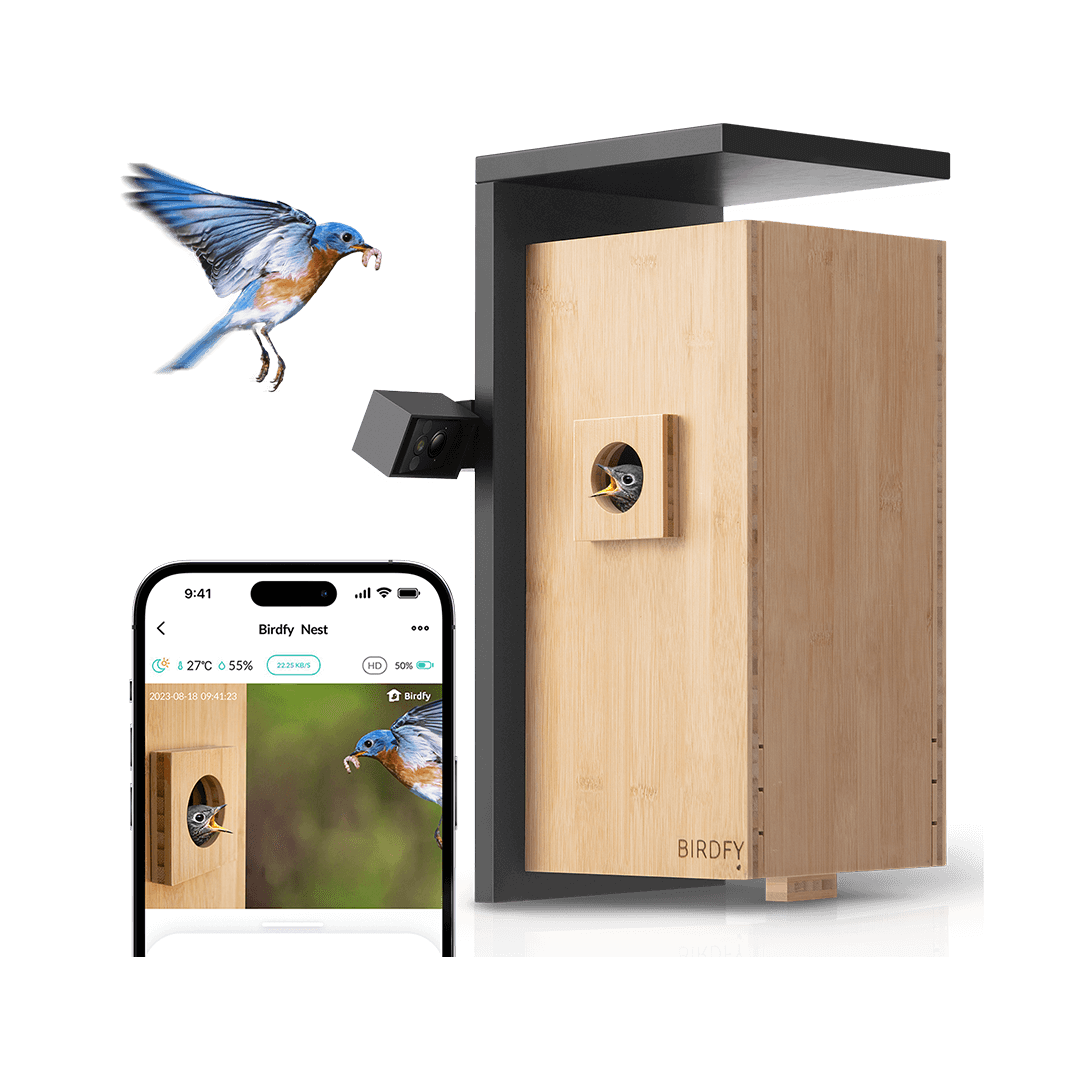User Story: A Record of Birdwatching under the Solar Eclipse
From Cathie Read
2024 Eclipse
April 8, 2024
When I learned that my house was in the narrow path of the 2024 Total Eclipse I was beyond excited. I had experienced partial eclipses before, but this would be my first total. I did a little research, trying to get an idea of what to expect. It was interesting learning about past eclipse studies, but I still felt overwhelmed—I wanted to see everything there was to see, hear and feel the sounds and vibes in my yard, and study my birds and bees all at the same time.


I felt very fortunate to have an assortment of bird cameras, from stand-alone to those incorporated into a feeder, and an added nesting box with camera. To top it off, I had a family of tufted titmice nesting in the Birdfy Nest box, with chicks who would be 13 days old on Eclipse Day!
Pre-Eclipse Preparation: Birds and Data Collection
During my research I came across an article about the NASA Eclipse Soundscapes Project, which would collect data and observations during this eclipse. After reading about the project, I signed up as both an observer and a data collector. Being a data collector required purchasing an AudioMoth device, as the free ones had already been claimed in January. I did this three weeks before the eclipse, not realizing that the AudioMoth would be shipped from Germany. Fortunately, it arrived within ten days, giving me time to learn how to set it up and use it properly before the eclipse.
I knew the project was more focused on the sounds of insects (crickets, bees, etc.) but in the back of my mind I wanted to try to combine the use of the audio recorder with my love of birds. During the last Zoom session for data collectors, I asked if it would be acceptable for me to place the AudioMoth near my Birdfy Nest, to capture the sounds of the baby birds and gauge their reaction, if any, to the eclipse. I explained that the nest was placed near the wooded part of my yard, so I expected there would be plenty of insects, too. I was pleasantly surprised by the positive response! They were excited about the possibility of capturing baby bird chirps in addition to the other expected data.

I tend to be an over-thinker, so I tried to anticipate what could happen to mar the big day. Weather could be an issue, of course, so I closely followed the forecasts once the 14-day predictions came out. I knew that here in north Texas it can change drastically during that long two week wait, so I wasn’t very concerned with an initial prediction of 40% rain. As time passed and forecasts changed my hopes went up and down like a roller coaster, finally landing on a partly cloudy day with thunderstorms shortly following the eclipse. That I could deal with. I considered that the birds and bees probably wouldn’t care if it was sunny or cloudy, but they would still notice the total darkness for four minutes in the middle if the day.
I made a to-do list for the morning of eclipse day—top off bird and bee feeders, clean all camera lenses, charge my phone, tablet and old tablet to be ready to capture video from feeders during the process, feed the dogs and make sure they were comfortable in the house while I played outside, and set a lawn chair, solar glasses and energy drink out in the middle of the yard. I was ready.
Eclipse Moments: Birdwatching and Nature Scenes
According to the official timeframe, here in Burleson, Texas the eclipse would start at 12:22 p.m. and conclude at 3:01 p.m. The Period of Totality would be from 1:39 to 1:42. I had finished my to-do list by 12:00 and was feeling very confident. I then remembered the trail camera that I recently bought, with the intention to use it “somehow” during the eclipse. It was quickly placed aside the day I opened it because I could not read the fine print of the user manual. Being a senior who has had cataract surgery I often have a problem with near vision now, so I usually ask for a PDF file of the manual for devices I buy. I remembered seeing the email with the file a few days ago and hurried to open it and set up the trail camera near my woods. Now I was ready.
By the time I went outside it was 1:00 and the eclipse had been underway for forty minutes. The weather predictions were a little off—we had a sunny morning with some high clouds developing right before eclipse time. It was good.
Birds' Reactions: How Titmouse birds and Bees Perform

It felt a bit like twilight, the sky was getting dusky, and a nice breeze was blowing. It was very peaceful. Other than a large unidentifiable flock flying overhead I did not see any birds, but I could hear their songs and calls coming from the woods. Later data from my camera feeders confirmed that birds stopped coming to the feeders around 12:35. They did not return until well after totality was over, and some feeders had no birds for the rest of the day. At 1:29, ten minutes before totality, I saw the mama titmouse fly from the woods to the nest box. Video inside the nest showed her quickly feeding her brood a large worm, then leaving. She did not return until 2:05, which is very uncommon during this phase of nesting—she usually makes 8-15 trips every hour to the nest. She quickly resumed her schedule, making forty-six more feeding trips before dusk.

I have only recently been offering food to the bees. Last week a large group of honeybees took over my hummingbird feeders, so I tried to deflect them from those by providing them with a nectar saucer of their own. It has been very successful, and I’ve even dedicated one of my stand-alone Birdfy cameras to their feeder. Not only did the bee activity at that feeder stop during the middle of the eclipse, but bees were also buzzing around open areas of the yard in bewilderment. They buzzed around me where I was seated, which was over fifty feet from any feeders. They returned to their feeder more quickly than the birds, within half an hour of the maximum totality.
The End of the Eclipse: Looking forward to sharing the recordings
As sudden as total darkness came it was over. Four minutes goes by quickly. It was quiet, peaceful and somewhat magical. It was only disturbed in the last minute of totality by a nearby neighbor who thought the proper way to celebrate the eclipse was to set off fireworks. Yes, big, high-in-the-sky full fledged fireworks. It was over. I found that the trail camera was not helpful for any data collection, other than recording a few bees. I already have plans to place it outside the Birdfy Nest box this weekend, when the titmouse chicks are expected to fledge, to see where they go. I will later use it to identify the nighttime critters in my yard.
The AudioMoth for the NASA project will stay in place for two more days. It was also deployed two days early so it could collect before, during and after audio data. I look forward to participating in the data analysis portion of the study and later seeing the final results. It is a nice feeling to think that my titmouse chicks may contribute to the history of the 2024 Total Eclipse!
The AudioMoth for the NASA project will stay in place for two more days. It was also deployed two days early so it could collect before, during and after audio data. I look forward to participating in the data analysis portion of the study and later seeing the final results. It is a nice feeling to think that my titmouse chicks may contribute to the history of the 2024 Total Eclipse!
I collected my solar glasses, phone, tablets, chair, and unopened drink, and went back inside to greet my sleeping dogs and wait for thunderstorms. It was a good day. 😊







Comments
Pat Sheehy Lee said:
Congrats! Great article it’s been fun following all your cameras and watching the videos of the babies from eggs to fledglings.
Craig Colvin said:
Great read! Thanks for giving an interesting perspective on the eclipses. I would have never thought about how eclipses effect insects, birds and small animals. Most interesting.
Linda Jackson said:
Great article, Cathie! You had a very fulfilling day! Thanks for your contribution!